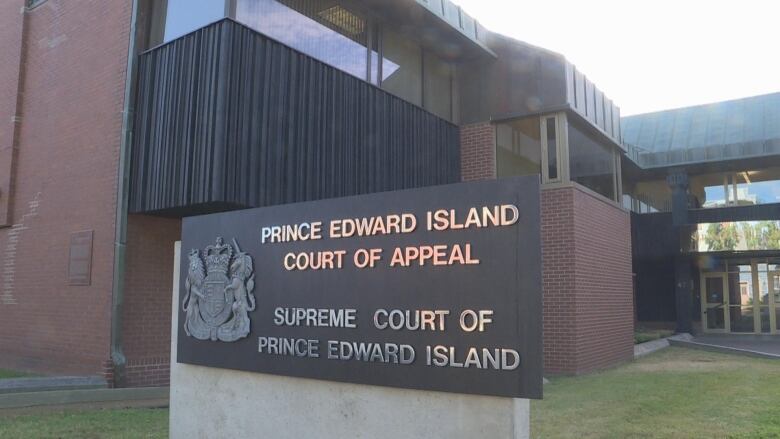P.E.I. judge wrestles with sentence for man who failed to self-isolate for COVID-19
Lawyers ask judge to consider public safety, mental health and visa issues

A P.E.I. judge iswrestling withhow to sentence a P.E.I. man who failed to self-isolate after testing positive for COVID-19.
It's an indictable offence in the CriminalCode of Canada, but the Crown prosecutor at Tuesday's sentencing hearing in P.E.I. Supreme Court in Charlottetown said it may be the first case of its kind in the country.
"This is the first in our province and I could find no other cases across Canada," John Diamond told the court.
His office has dealt with more than 100 cases since the pandemic began in March 2020.
Javan Mizero Nsangira, 22, of Charlottetown pleaded guilty to causing a common nuisance byfailing to self-isolate and endangering the public.
The charge stems from incidents last July, including onein whichCharlottetown police found Nsangira outside his home after he had been ordered to self-isolate. Nsangirahad tested positive for COVID-19 after driving to Halifax to pick up a man who had recentlyarrived in Canada.Nsangiraalso passed the virus on to three people in Charlottetown, one of whom worked in long-term care facility. That led to widespread testing of residents and staff at the facility.
The public is outraged at violations Crown prosecutor John Diamond
A few hours after he was found outside his home in July and told to self-isolate, he was discovered again on a street in Charlottetown. This time he was charged and tested positive for COVID-19 again. Since he didn't have aplace to self-isolate, he was placed at Brudenell Resort, which the provincial government was using for essential workers who didn't have a place to quarantine.

However, on July 17, he left his room at the resort and refused to return. He was arrested, tested positive again, and remanded at the provincial jail.
Nsangira pleaded guilty to both violations.
"The public is outraged at violations," Diamond told court. "This gentleman was suffering from a virus and after knowing he was positive, he continued to act in a reckless manner.
"There has to be a message sent to the community. There has to be a message sent to the accused as well," said the Crown.
Nsangira spent 54 days in pre-trial custody, andthe Crown is not asking for further jail time, but is seeking a period of probation, including 100 hours of community service work, letters of apology to the police and public health, and restitution for the costs of cleaning police vehicles exposed to COVID-19 during his arrests.
Criminal conviction could lead to deportation
Defence lawyer Derek Bondtasked the judge for a conditional discharge and 18 months on probation. A conditional discharge would allow Nsangira, who is in Canada on a student visa, to avoid deportation.
Nsangira is a business student at UPEI and hopes to complete a master's degree and remain in Canada, Bondt told court.
Justice Tracey Clements told the court, "I'm struggling. You can't have a separate regime, but appeal courts say sentencing judges need to consider immigration consequences."
Bondt argued that Nsangira's mental health at the time of the incident was not good. Bondt cited an agreed statement of facts in which Nsangira told a public health nurse that self-isolation was "driving him crazy and would kill him before COVID did."
A psychiatristwho examined Nsagiramonths later reported that he was suffering "hypomania" at the time of the incident.
The Crown prosecutor, however, argued there is no evidence that Nsangira's mental health was compromised at the time of the two incidents in July. He cited a presentence report that showed Nsangira declined medications at jail and told jail staff and healthworkers he had no mental problems.
Nsangira apologizes to court
Nsangira, who was present in court, rose to speak near the end of Tuesday's sentencing hearing.
"I formally apologize for what happened, to the Crown and to the people of Prince Edward Island," said Nsangira. "I take responsibility ... I am deeply sorry and I promise it will not happen again."
Calling this case "a unique situation," Clements said she needed some time to consider the arguments and adjourned the case to March 9. She said other evidence or witnesses may be produced then.












_(720p).jpg)


 OFFICIAL HD MUSIC VIDEO.jpg)
.jpg)



























































































